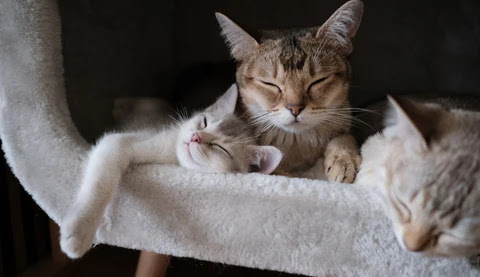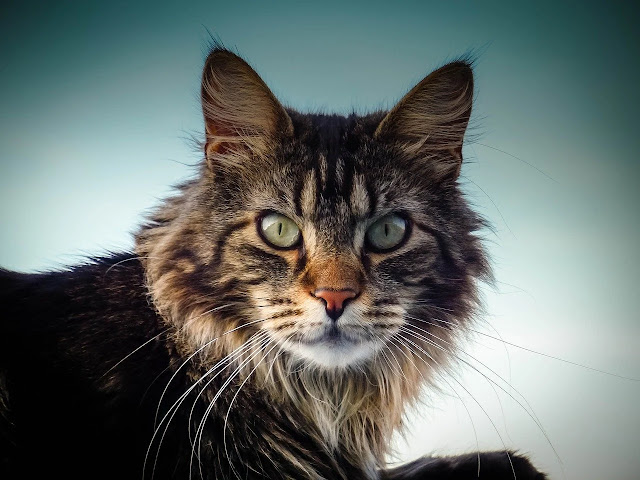hwo long do cats live?
Average cat life expectancy
When we welcome a cat into our lives, it’s only natural to wonder how long they will be with us. The average cat lifespan can vary depending on several factors, including genetics, environment, and overall care. On average, a well-cared-for indoor cat can live for 12-15 years, while outdoor cats generally have a shorter lifespan of 7-10 years. However, there are always exceptions, and some cats have been known to live well beyond these averages.
Longest living cat breeds
While the lifespan of a cat can vary, certain cat breeds have been found to live longer than others.
Here are some of the longest living cat breeds:
- Siamese: Siamese cats are known for their longevity, often living well into their late teens or early twenties.
- Ragdoll: Ragdolls are a relatively large and robust breed, and with proper care, they can live up to 15-20 years.
- Persian: Persian cats are known for their luxurious coats and calm demeanor. With regular grooming and veterinary care, they can live up to 15 years or more.
- Japanese Bobtail: This breed has a long history in Japan and is known for its longevity. Japanese Bobtails can live for 15-18 years.
- Sphynx: Despite their lack of fur, Sphynx cats have a relatively long lifespan. With proper care, they can live up to 15 years or more.
Indoor vs. outdoor cats
One of the key factors influencing a cat’s lifespan is whether they are kept indoors or allowed to roam outdoors. Indoor cats generally live longer due to the reduced risk of accidents, exposure to diseases, and encounters with predators. Indoor cats are also less likely to be exposed to environmental hazards, such as toxic plants or chemicals. On the other hand, outdoor cats may have a shorter lifespan due to the increased risks they face. It’s important to note that some cat owners opt for a compromise by providing their cats with access to a secure outdoor enclosure or “catio” where they can experience the outdoors in a controlled environment.
Understanding cat behavior
In order to provide the best care for our feline friends, it’s important to understand their behavior and needs. Cats are known for their independent nature, but they also thrive on social interaction and mental stimulation. Providing your cat with plenty of playtime, interactive toys, scratching posts, and perches can help prevent boredom and promote their overall well-being.
Cats also have unique communication methods. Understanding their body language can help us identify their needs and emotions. For example, a relaxed and content cat may have a gently swaying tail, while an agitated or fearful cat may have a puffed-up tail and ears pulled back. By familiarizing ourselves with these cues, we can create a harmonious and stress-free environment for our cats.
Signs of aging in cats
As cats age, they may exhibit certain signs that indicate they are entering their senior years. While the aging process can vary from cat to cat, here are some common signs to look out for:
- Changes in appetite: Senior cats may experience a decrease in appetite or changes in their eating habits. It’s important to monitor their food intake and consult with a veterinarian if there are any significant changes.
- Decreased activity: Older cats tend to be less active and may prefer quieter and more comfortable spots for resting.
- Weight loss or gain: Fluctuations in weight can be a sign of underlying health issues and should be evaluated by a veterinarian.
- Dental problems: Dental issues, such as periodontal disease or tooth decay, become more common in senior cats. Regular dental care is essential to maintain their oral health.
- Changes in litter box habits: Senior cats may have difficulty accessing their litter boxes or may experience changes in their litter box habits. This could be a sign of arthritis or other age-related conditions.
Healthy diet for cats
A well-balanced diet is crucial for cats of all ages, but it becomes even more important as they enter their senior years. Senior cats may have specific dietary needs due to age-related changes in their metabolism and digestion.
Here are some dietary considerations for senior cats:
- High-quality protein: Cats are obligate carnivores, which means they require a diet rich in animal-based protein. Look for cat foods that list real meat as the primary ingredient.
- Moisture content: Senior cats may require additional moisture in their diet to support kidney health. Wet cat food or adding water to dry food can help ensure they stay properly hydrated.
- Joint support: As cats age, they may develop joint issues such as arthritis. Look for cat foods that contain ingredients like glucosamine and chondroitin to support joint health.
- Weight management: Obesity can exacerbate age-related health issues in cats. Ensure that your cat maintains a healthy weight through portion control and regular exercise.
Environmental enrichment for cats
Cats are natural hunters and explorers, and providing them with environmental enrichment is essential for their well-being.
Here are some ideas to create a stimulating environment for your cat:
- Vertical space: Cats enjoy perching up high to observe their surroundings. Install cat shelves, trees, or provide access to tall furniture to allow your cat to climb and explore.
- Interactive toys: Toys that mimic prey, such as wand toys or puzzle toys, can engage your cat’s hunting instincts and provide mental stimulation.
- Scratching posts: Cats need an outlet for their natural scratching behavior. Provide sturdy scratching posts or boards to protect your furniture and keep your cat’s claws healthy.
- Hideaways: Cats appreciate cozy hiding spots where they can retreat and feel safe. Consider providing cat tunnels, enclosed beds, or cardboard boxes for them to relax in.
Caring for senior cats
As cats enter their golden years, they may require some extra care and attention.
Here are some tips for caring for senior cats:
- Veterinary check-ups: Regular veterinary check-ups become even more important as cats age. Discuss any concerns with your veterinarian and ensure your cat receives necessary vaccinations and preventive care.
- Dental care: Dental issues are common in senior cats. Regular brushing and professional dental cleanings can help maintain their oral health.
- Comfortable bedding: Provide your senior cat with soft and comfortable bedding to support their joints and provide a cozy resting place.
- Monitor their weight: It’s important to monitor your senior cat’s weight to ensure they maintain a healthy body condition. Consult with your veterinarian if there are any significant changes.
- Adapt their environment: Make sure your home is senior-friendly by providing ramps or stairs for easy access to elevated surfaces and litter boxes.
While we cannot predict exactly how long our feline friends will be with us, by providing them with proper care, a healthy diet, and a stimulating environment, we can help ensure they live their best lives. Cherish the moments you have with your cat and create lasting memories together.













